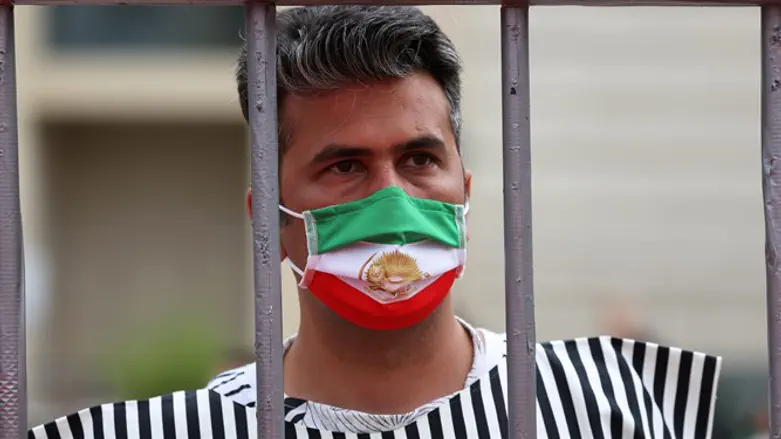
Iran on Saturday began a 10-day lockdown amid a fourth wave of coronavirus infections, The Associated Press reported, citing state TV.
Iran's coronavirus task force, charged with determining virus restrictions, ordered most shops closed and offices restricted to one-third capacity in cities declared as “red-zones.”
The capital Tehran and 250 other cities and towns across the country have been declared red zones. They have the highest virus positivity rates and the most severe restrictions in place. Over 85% of the country now has either a red or orange infection status, authorities said.
The new lockdown also affects all parks, restaurants, bakeries, beauty salons, malls and bookstores.
Iran has for months wrestled with the worst outbreak in the Middle East of COVID-19.
In a clear sign of the scale of the outbreak, dozens of top officials have fallen ill. At least 30 lawmakers have tested positive in recent months and some have died.
High-profile deaths in Iran from the coronavirus include a member of the council advising the Ayatollah, a former ambassador, a newly-elected member of parliament, an adviser to Zarif and a re-elected member of parliament.
Meanwhile, Iran's vaccine rollout has lagged. Only some 200,000 doses have been administered in the country of 84 million, according to the World Health Organization.
COVAX, an international collaboration to deliver the vaccine equitably across the world, delivered its first shipment to Iran on Monday from the Netherlands containing 700,000 Oxford-AstraZeneca vaccine doses.
Iran has so far imported foreign vaccines from Russia, China, India and Cuba to cover over 1.2 million people. It has also developed several homegrown vaccines, though the effectiveness of those is not known.
